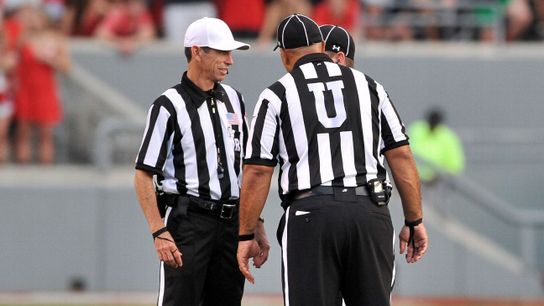The NCAA on Tuesday announced a new committee which will collaborate with the NCAA Football Rules Committee, which will then report its findings to the Division I Football Oversight Committee, which.... I know, I know. Reading about NCAA governance can make the driest sections of the Old Testament feel vibrant.
But this one may be different.
Headed by Arizona State AD Ray Anderson, formerly the NFL's vice president of football operations, this new committee will study length of games among its topics, and CBS Sports's Jon Solomon has some interesting reporting on what that could entail.
According to Solomon, both the ACC and SEC have studied the possibility of timing games by NFL-style rules -- which calls to keep the clock running after first downs -- or by a new measure: re-starting the clock after the ready-for-play signal following incomplete passes. (The NCAA's legislative calendar dictates 2017 for an off-year for rule changes unless in the case of player safety, so it's likely any changes, if agreed upon, would not be enacted until 2018.)
FBS games creeped up to a record 3 hour, 24-minute average in 2016, a 12-minute increase from just seven seasons ago. While most agree on the cause -- more plays, more passes, more scores all lead to more clock stoppages -- it doesn't explain why the average FBS game is 19 minutes longer than the typical FCS game and 44 minutes longer than an average Division III game.
The key difference there is, obviously, television, but snipping or outright cutting any commercial breaks would eat into the ad revenue networks rely on to pay the nine-figure contracts each major conference enjoys.
So unless the conferences want to get paid less for less inventory, the game must look inward. And thus here we are.
The issue here, though, is obvious: any drastic change to how the game is timed will have a direct impact on how the game is played. As Solomon points out, does Clemson beat Alabama last month if the Tigers don't run 99 plays? And can they run 99 plays if the clock keeps rolling after the game's 47 first downs or if it re-starts after its 39 incomplete passes?
It's an all-encompassing existential crisis waiting to happen, but it's a conversation that needs to be had.
Because unless the style of play changes drastically in a way that incentivizes offenses to move slower, to throw less, and to run fewer plays, the average college football game is on pace to push four hours by the end of this decade.
